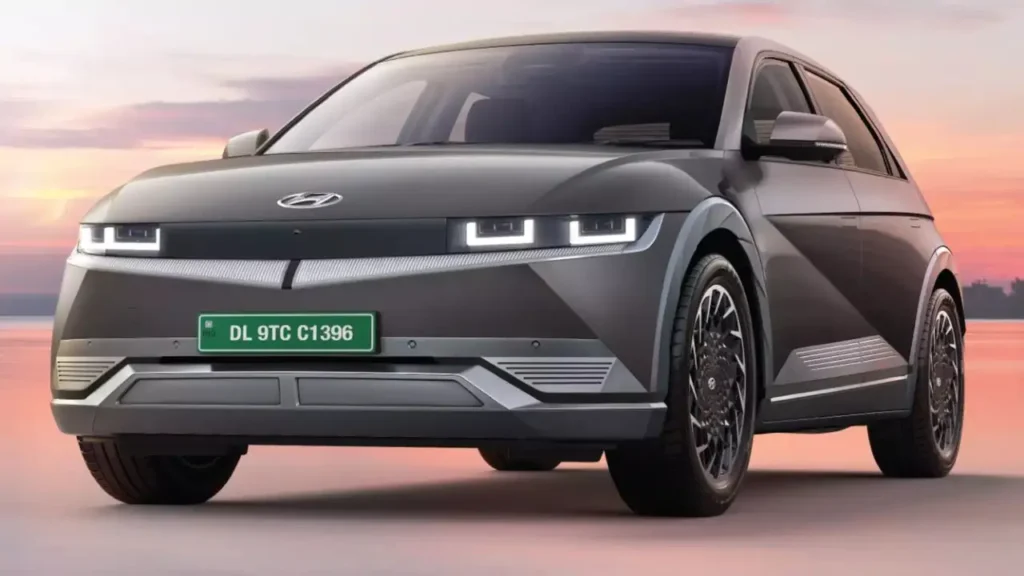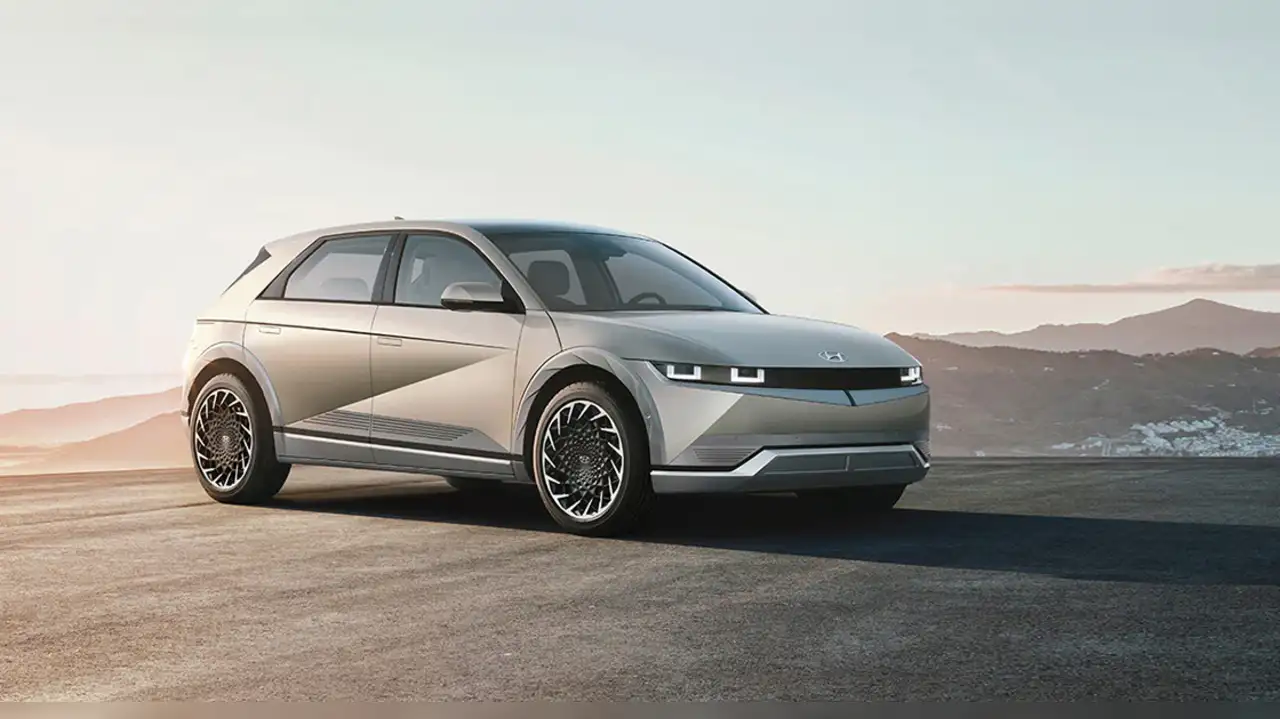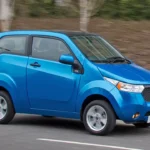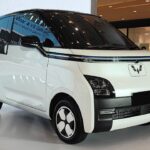Hyundai, one of the leading global automakers, is preparing to introduce its much-anticipated Ioniq electric vehicle (EV) lineup in India. The Ioniq series, which has already made waves in international markets, is set to make its debut in the Indian market with a premium price tag. While the entry of Hyundai’s Ioniq EVs is a significant milestone in India’s growing electric vehicle sector, the higher pricing could limit their accessibility to a wider audience. In this article, we explore what the Hyundai Ioniq EVs bring to the Indian market, why they are priced higher, and how this move may impact the future of electric mobility in India.
Hyundai Ioniq EV: A Vision for the Future of Mobility
The Hyundai Ioniq series represents the brand’s commitment to sustainability, performance, and innovation. Available in various configurations, including fully electric, hybrid, and plug-in hybrid models, the Ioniq has been a popular choice globally for consumers looking to transition to eco-friendly driving without sacrificing performance or comfort.
The fully electric version, the Hyundai Ioniq 5, is especially exciting, boasting a modern design, cutting-edge technology, and a spacious interior. With a range of up to 480 kilometers (about 300 miles) on a single charge, the Ioniq 5 is designed for both city commuting and long-distance travel. Features such as ultra-fast charging, advanced driver assistance systems (ADAS), and a futuristic cabin are some of the highlights that make the Ioniq 5 an attractive option for tech-savvy buyers.
In addition to performance, Hyundai has ensured that the Ioniq series delivers high levels of sustainability. The vehicles are built with recycled materials, and the design emphasizes energy efficiency. These factors make the Ioniq a standout choice for buyers who are environmentally conscious but still desire a high-performance, premium driving experience.
Premium Pricing for Indian Market
While the Hyundai Ioniq series brings advanced features and sustainability to the forefront, it is expected to be priced higher in India compared to its counterparts in the international market. The anticipated price range for the Ioniq EVs in India could start from ₹45 lakh to ₹55 lakh (approximately $55,000 to $67,000), depending on the model and configuration.
This price tag places the Hyundai Ioniq EV in the premium segment of the Indian electric vehicle market. It will be competing with other high-end EVs, such as the Volkswagen ID.4, Tata Nexon EV, and upcoming models from international brands like Tesla. While the Ioniq 5 is a feature-packed, futuristic electric vehicle, the high pricing may limit its appeal to only affluent buyers or those looking for a premium electric experience.
Several factors contribute to this higher pricing. Firstly, the import duties on fully imported electric vehicles (CBUs) in India play a significant role in elevating the price. The Ioniq 5 will likely be imported as a completely built unit, which means it will be subject to high import taxes. In addition to that, the cost of advanced technology, including the long-range battery and fast-charging capabilities, further raises the price point.

The Impact of Higher Prices on the Indian Market
The higher pricing of the Hyundai Ioniq EVs presents both challenges and opportunities in the Indian market. While India’s electric vehicle market is growing, the majority of the demand is currently concentrated in the more affordable segments, with consumers looking for budget-friendly EVs. Models like the Tata Nexon EV have already gained significant traction due to their more accessible pricing and government incentives for electric vehicles.
Given this scenario, the higher pricing of the Ioniq EVs could limit their appeal to a niche segment of the Indian market—particularly the upper-middle-class and high-net-worth individuals who are looking for a premium EV option. However, this could also open up opportunities for Hyundai to target the growing eco-conscious and tech-savvy consumer base that is willing to pay a premium for sustainable luxury.
Hyundai’s strategy to introduce a higher-priced EV could also be part of a long-term vision to establish itself as a leader in the luxury electric vehicle segment in India. As the infrastructure for EVs improves, and as the Indian government continues to promote electric mobility through policies and subsidies, the demand for premium electric vehicles like the Ioniq could increase.
The Road Ahead for Hyundai in India
Despite the premium pricing, the launch of Hyundai’s Ioniq EVs could significantly influence the growth of the electric vehicle market in India. Hyundai’s reputation for building reliable, feature-rich vehicles combined with the global shift toward electric mobility could make the Ioniq an attractive option for those who can afford it.
In the coming years, as EV infrastructure such as charging stations becomes more widespread, and as more affordable EV options become available, the higher pricing of the Ioniq could become less of a barrier. Hyundai’s push toward eco-friendly solutions is in line with the Indian government’s push for cleaner and greener transportation, and this could result in additional incentives or policy support that could help make electric vehicles more accessible.
The success of the Ioniq EVs in India will depend largely on how well Hyundai can manage the challenges posed by the pricing and infrastructure. If Hyundai offers strong after-sales services, easy access to charging facilities, and efficient customer support, the Ioniq could pave the way for more premium electric vehicle options in the Indian market.
Conclusion
The Hyundai Ioniq EVs represent a step forward for the Indian electric vehicle market, especially in the premium segment. While the higher price tag may limit their accessibility to a select group of buyers, the advanced features, sustainable design, and cutting-edge technology could make the Ioniq a compelling choice for affluent consumers. As the EV ecosystem in India continues to evolve, the launch of the Ioniq could set the stage for future innovations and help reshape the way Indians approach electric mobility. Hyundai’s bold move into the higher-end EV market may just be the catalyst for the growth of premium electric vehicles in India, driving the country toward a greener future.







